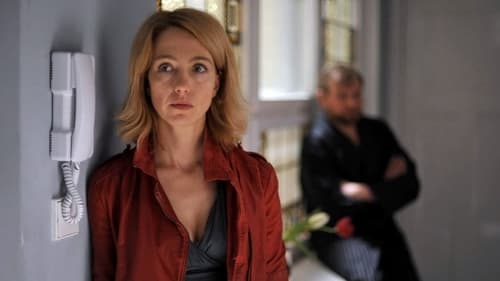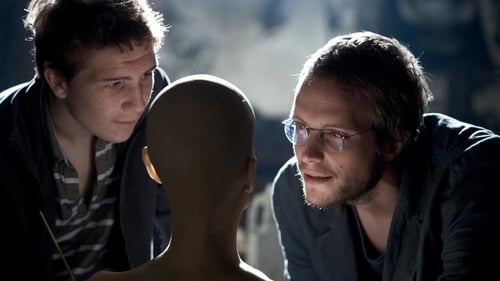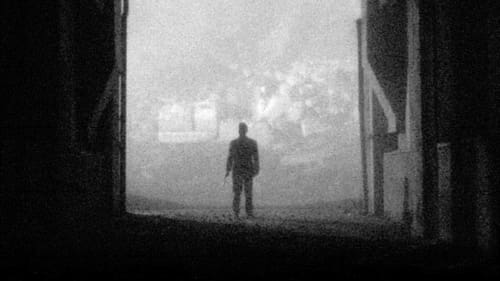Andreas Kleinert
출생 : 1962-01-01, Berlin, Germany
약력
Andreas Kleinert was born in 1962 in Berlin. He worked as a props assistant and intern at the DEFA feature film studios and was an assistant director to filmmakers like Rainer Simon and Hermann Zschoche. He studied Directing at the \"Konrad Wolf\" University of Film & Television in Babelsberg from 1984-1989 and graduated with Farewell, Joseph (Lebewohl, Joseph, 1989), which was nominated for a Student Oscar. A selection of his other award-winning films includes: Lost Landscape (Verlorene Landschaft, 1992), Outside Time (Neben der Zeit, 1995), In the Name of Innocence (Im Namen der Unschuld, 1997), Paths in the Night (Wege in die Nacht, 1999), Ich moechte Zeugnis ablegen bis zum Letzten (TV, 1999), Kelly Bastian - Geschichte einer Hoffnung (TV, 2001), Coming Home (Mein Vater, TV, 2003), Stranger (Der Fremde kam, TV, 2005), Hurenkinder (TV, 2006), Head Under Water (Freischwimmer (2007), Haus und Kind (2008), and Boundaries (Barriere, 2010).

Director
Thomas Brasch was born as a German-Jewish emigrant in England in order to move to the young GDR with his family at the beginning of the 1950s. His father Horst is primarily interested in helping to build the new German state. But Thomas prefers to realize himself as a writer and in doing so discovers his potential as a poetic rebel. His very first play was banned and soon afterwards he lost his place at the film school. When the tanks of the Soviet Union roll through the Czech capital Prague in 1968, Brasch and his girlfriend Sanda and other students try to call for protest in the streets of Berlin - and fail. His own father betrays him to the Stasi and allows Thomas to go to prison. After being paroled, he continues to try his hand at poet writing about love, revolt and death. In the GDR, however, you don't want to have anything to do with someone like him.

Director
Paul Bacher is in crisis. If he could feel in the past as one of the most influential writers of his generation, he has long lacked ideas and impetus for a new great work. His reading tours are becoming more and more a sad affair with too much alcohol and too little public. Then Paul overflows in a drunken hitchhiker, flees first scared and later removes the body, without talking to anyone about the experience. But something is flowing in its interior. Paul starts to write again. The criticism is done, but the story about the death of a hitchhiker also arouses suspicion.

Script
Newlyweds Hedda and Jorgen Tesman are just returning from their honeymoon to a villa by the edge of the forest with a breathtaking view on the city. Restoration work on their home has not yet been completed, and Jorgen will soon be running out of money. That's if he doesn't succeed Dr. Franck Brack as head physician of the city hospital. Jorgen and Hedda prepare dinner for Brack, when two uninvited guests emerge. As the evening progesses the group becomes entangled in a weave of guilt, love and betrayal and when morning comes disaster has struck.

Director
Newlyweds Hedda and Jorgen Tesman are just returning from their honeymoon to a villa by the edge of the forest with a breathtaking view on the city. Restoration work on their home has not yet been completed, and Jorgen will soon be running out of money. That's if he doesn't succeed Dr. Franck Brack as head physician of the city hospital. Jorgen and Hedda prepare dinner for Brack, when two uninvited guests emerge. As the evening progesses the group becomes entangled in a weave of guilt, love and betrayal and when morning comes disaster has struck.

Director
Lena is happily married. From the strange man in the S-Bahn but such a pull goes out that she gets involved in a spontaneous infidelity. The stranger, Martin, also thought that the marriage with his wife was completely safe. Nevertheless, what should actually be written off as an adventure between Lena and Martin is becoming the projection screen for newly created needs and longings. Lena and Martin can not let go of each other.

Director

Writer
Nina and Mark wish for years in vain a child. An adoption is out of the question for them, they would like to have their "own" child. There seems to be only one solution left for her: a surrogate mother in India. A business model that specific physicians and clinics specialize in the field. Euphorically, Nina and Mark travel to their foreign country. Everything seems perfect at first, the doctor Kamalika acts competent and in the young Shanti they quickly find the right surrogate mother for their desired baby. But in the nine months to the birth they begin to wonder if the decision was right.

Director
Nina and Mark wish for years in vain a child. An adoption is out of the question for them, they would like to have their "own" child. There seems to be only one solution left for her: a surrogate mother in India. A business model that specific physicians and clinics specialize in the field. Euphorically, Nina and Mark travel to their foreign country. Everything seems perfect at first, the doctor Kamalika acts competent and in the young Shanti they quickly find the right surrogate mother for their desired baby. But in the nine months to the birth they begin to wonder if the decision was right.

Director

Director

Director

Writer
Nine young actors leave behind their daily lives in Berlin and travel to the country to audition for a summer theatre production to be performed in the ruins of an old church. A once-renowned Swiss director is using this week of rehearsals to find the lead for this production of “Hamlet”. The director is staying privately at the home of an old woman, but the actors are being put up at a run-down hotel with very thin walls.

Director
Nine young actors leave behind their daily lives in Berlin and travel to the country to audition for a summer theatre production to be performed in the ruins of an old church. A once-renowned Swiss director is using this week of rehearsals to find the lead for this production of “Hamlet”. The director is staying privately at the home of an old woman, but the actors are being put up at a run-down hotel with very thin walls.

Director

Director

Director
Something terrible is about to happen in a small town in Germany. Nobody knows the reason why, except one person: Rico Bartsch. The 15-year old grammar school pupil, an absolute outsider, is in love with the most beautiful girl at his school. What in the beginning is a longing that can never be fulfilled will come true at the end of the story. Beautiful Regine will beg for Rico’s love. Until then several inhabitants of the town will die an unnatural death...

Director

Director
Jochen's life is going well. He has just moved into a new house with his wife and child when suddenly his widowed father accidentally runs into a car and begins to lose his mind. The family take the old man in but tensions arise when the family has to grapple with the old father's worsening Alzheimer's condition.

Director

Director
Set against the backdrop of post-unification Germany, the film explores the breakdown of relations in a decaying social structure.

Screenplay
The mother of a murdered hitchhiker meets the offender.

Director
The mother of a murdered hitchhiker meets the offender.

Director
Outside Time is the second feature film of Andreas Kleinert, a German director who grew up in the GDR and who started making films at the time of the fall of the Wall. The film is set in a small town somewhere in Brandenburg, a place which is rapidly falling "outside time"; since it cannot keep pace with the changes brought about by unification and the transformation of the former GDR. The Russian troops stationed there have withdrawn and their barracks have turned into rat-infested ruins; the intercity trains do not stop there any more and even the regional railway link to Berlin is going to be suspended. Most young people are leaving. When Sophie introduces her lover to her mother and her brother, Sergej becomes embroiled in the incestuous tensions underlying the relationship between Sophie, her brother, Georg, and her mother. The arrival of the Russian implodes the claustrophobic sham existence that held this dysfunctional family together.

Writer
Elias, born at the end of the war, receives an anonymous phone call on his 47th birthday: his parents are dead. He is now a successful politician, but thirty years ago he had fled from his home and parents in the East to seek a new life in the West. The return to his parental home causes Elias a sense of unease and disturbs the rigid order and complacency of his life.

Director
Elias, born at the end of the war, receives an anonymous phone call on his 47th birthday: his parents are dead. He is now a successful politician, but thirty years ago he had fled from his home and parents in the East to seek a new life in the West. The return to his parental home causes Elias a sense of unease and disturbs the rigid order and complacency of his life.

Assistant Director
During the Greek summer in the war year of 1944, a German military unit sets up camp on the plateau of Thebes. Armed with a 16 mm camera, the captain of the unit, a former professor for classical Greek philology, comes up with the idea to film the myth of Oedipus.

Writer
Film director Andreas Kleinert belongs to the last generation of filmmakers that emerged in the former German Democratic Republic (GDR). Born in 1962, Kleinert's attitudes were shaped by the late 1970s, and particularly by the 1980s—a period of increasing disillusionment. He wrote his thesis on “Levels of Consciousness in the Film Poetry of Andrei Tarkovsky,” the late Soviet film director who made a name for himself in the pre-perestroika years with bleak films. As Kleinert completed his film academy studies with his graduation film, Leb' wohl, Joseph ( Farewell, Joseph, 1989), the Berlin Wall fell, heralding the collapse of the GDR. Kleinert won the main prize for his diploma feature film, Leb' wohl, Joseph, at the Munich International Festival for Film Schools. The next year, this remarkable black-and-white Kafkaesque film of cryptic symbols and enigmatic metaphors was invited to compete at Locarno.

Director
Film director Andreas Kleinert belongs to the last generation of filmmakers that emerged in the former German Democratic Republic (GDR). Born in 1962, Kleinert's attitudes were shaped by the late 1970s, and particularly by the 1980s—a period of increasing disillusionment. He wrote his thesis on “Levels of Consciousness in the Film Poetry of Andrei Tarkovsky,” the late Soviet film director who made a name for himself in the pre-perestroika years with bleak films. As Kleinert completed his film academy studies with his graduation film, Leb' wohl, Joseph ( Farewell, Joseph, 1989), the Berlin Wall fell, heralding the collapse of the GDR. Kleinert won the main prize for his diploma feature film, Leb' wohl, Joseph, at the Munich International Festival for Film Schools. The next year, this remarkable black-and-white Kafkaesque film of cryptic symbols and enigmatic metaphors was invited to compete at Locarno.

Director





